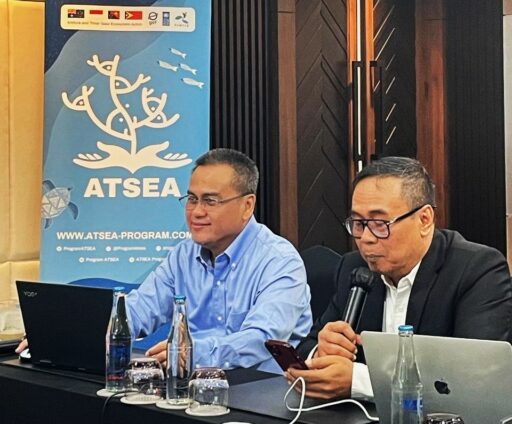
The Arafura and Timor Seas Ecosystem Action Phase II (ATSEA-2) Project supported the Regional Plan of Action to Promote Responsible Fishing Practices including to Combating Illegal, Unreported, and Unregulated Fishing Practices in the Region (RPOA-IUU) to organise the Advanced Fisheries Intelligence Training on 20 to 23 February 2024 in a hybrid format. The training underlines
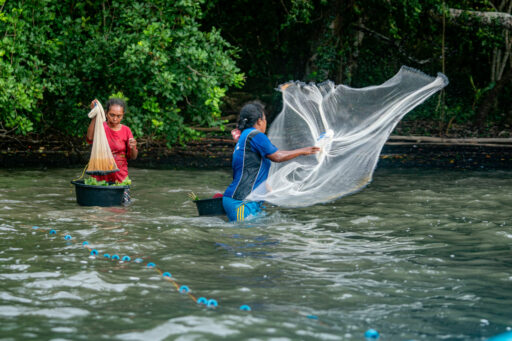
In the picturesque coastal enclave of Natarbora in Timor-Leste’s Manatuto Municipality, the Tok-Derek Women’s Cooperative has emerged as a beacon of community empowerment. Supported by the Arafura and Timor Seas Ecosystem Action Phase II (ATSEA-2) Project and the UNDP Integrated Coastal Management (ICM) program, this success story is rooted in a transformative collaboration that addresses
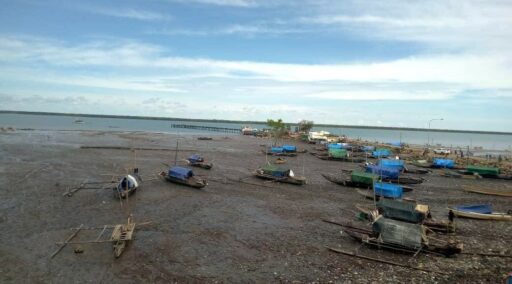
The Fore Coast of South Fly district, located in Western Province, Papua New Guinea, is a remote area that is heavily dependent on fisheries and marine resources. The people here rely mainly on traditional practices in the management of marine resources. However, the pressures of a growing population and the increasingly commonplace use of modern
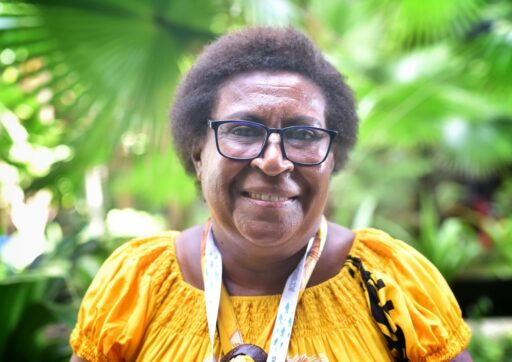
Dainah Gigiba is the District Fisheries Officer for South Fly District in the Western Province of Papua New Guinea (PNG), where she has worked with the National Fisheries Authority (NFA) for the past 30 years. In her capacity as a delegate for the provincial government, she provides essential support to ATSEA-2 in our mission to
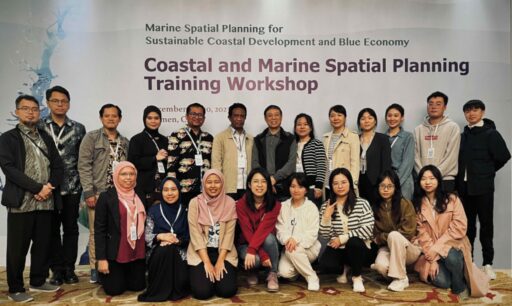
Indonesia’s ambitious plan to establish a new capital, Nusantara, in East Kalimantan, presents a unique opportunity to integrate sustainable Marine Spatial Planning (MSP) into the developmental framework. The Directorate General of Marine Spatial Management of the Indonesian Ministry of Marine Affairs and Fisheries (MMAF) has partnered with the Fujian Institute of Sustainable Ocean (FISO), Xiamen
Red snapper is a catch-all term that is commonly used to describe a number of key fish species, including saddletail snapper (Lutjanus malabaricus), crimson snapper (L. erythropterus), red emperor (L. sebae) and goldband snapper (Pristipomoides multidens). Each of these species play a crucial role in commercial, artisanal and recreational fisheries within the Arafura and Timor
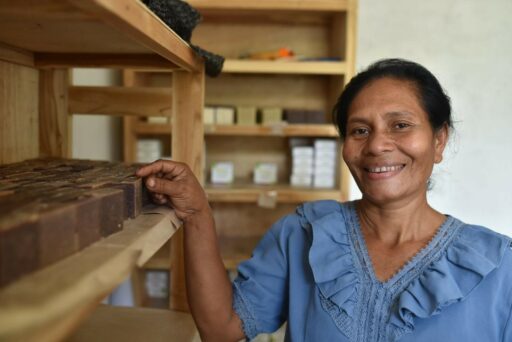
To the village community in the heart of Rote Ndao District in East Nusa Tenggara Province, Metri Nainatu (known locally as Mama Metri) is a source of inspiration and a symbol of resilience. Her transformative journey from fisher to entrepreneur has blazed a trail for other coastal communities to follow towards a more adaptive, resilient
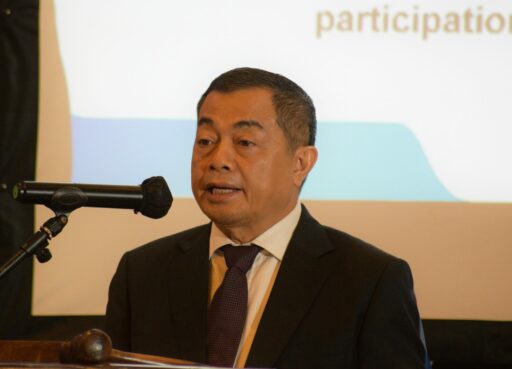
On 21 and 22 November 2023, the Indonesian Ministry of Marine Affairs and Fisheries (MMAF) hosted the 5th Regional Steering Committee (RSC) Meeting for the Arafura-Timor Seas Ecosystem Action Phase II (ATSEA-2) Project. The meeting represented a collaborative effort to engender sustainable practices and strengthen marine and fisheries governance in the Arafura and Timor Seas
In the picturesque Aru Archipelago, the Arafura and Timor Seas Ecosystem Action Phase II (ATSEA-2) team has teamed up with the Southeast Aru Marine Protected Area (MPA) Work Unit, National Marine Conservation Office Kupang (Balai Kawasan Konservasi National Kupang/BKKPN Kupang), and community-led surveillance groups (Kelompok Masyarakat Pengawas/Pokmaswas) to form a dynamic megafauna team. Led by
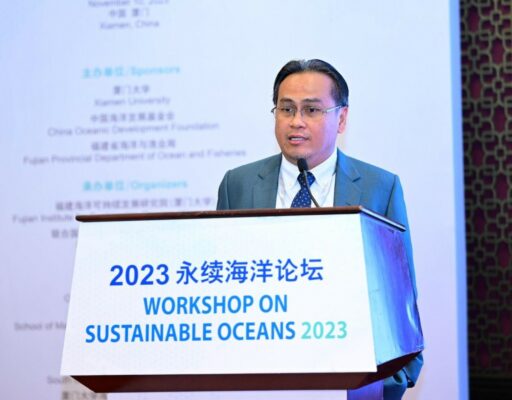
Dr Handoko Adi Susanto, Regional Project Manager of the Arafura and Timor Seas Ecosystem Action Phase II (ATSEA-2) Project, was invited by Fujian Institute for Sustainable Oceans (FISO) of Xiamen University to the Workshop on Sustainable Ocean 2023. The Workshop, taking place on 10 November 2023 in Xiamen, addressed urgent coastal concerns and served as
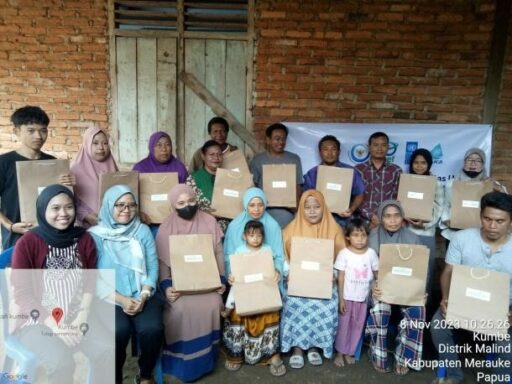
Lampu Satu Beach in Merauke is a thriving hub for the local fisheries sector. Located on the shores of the Arafura Sea, with easy access to fish landing facilities and the Merauke Nusantara Fisheries Port (PPN), Lampu Satu has evolved over time from a remote fishing village into a bustling hub of commerce. But today
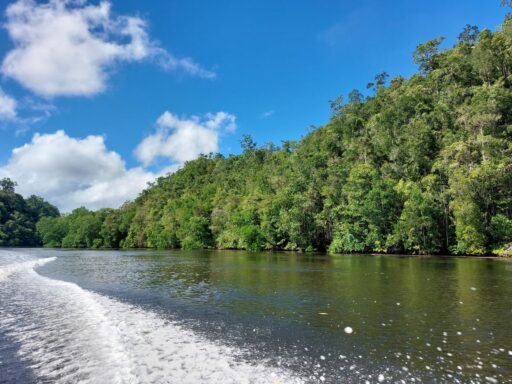
The Arafura and Timor Seas (ATS) region is home to a quarter of the world’s mangroves. At the local level, these ecosystems provide nurseries, shelter and sustenance for a multitude of marine life, contributing to the overall biodiversity of the region, while also helping maintain ecological balance on a global scale. To support the preservation
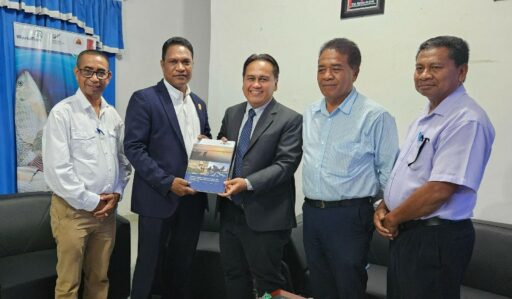
In a crucial endeavour to champion responsible fishing practices and combat Illegal, Unreported, and Unregulated (IUU) fishing, the 16th Regional Plan of Action to Promote Responsible Fishing Practices, including Combating Illegal, Unreported, and Unregulated Fishing (RPOA-IUU) Coordination Committee Meeting (CCM) convened from 26-27 October 2023, in Dili, Timor-Leste. Dr Handoko Adi Susanto, Regional Project Manager
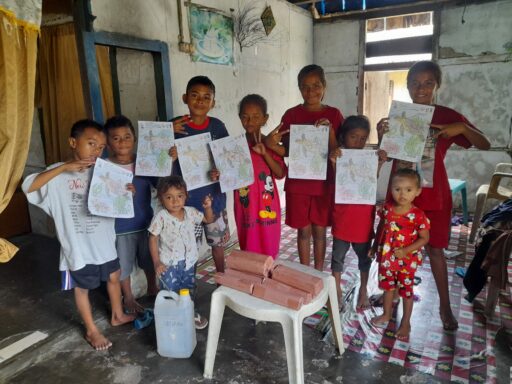
Apara Village and Karey Village, located within the Southeast Aru Marine Protected Area (MPA), hold administrative and cultural significance. These communities primarily comprise fisherfolks whose livelihoods revolve around the MPA. As a result, there is a distinct correlation between community activities and the effectiveness of conservation efforts. Recognising the pivotal role of these villages, the
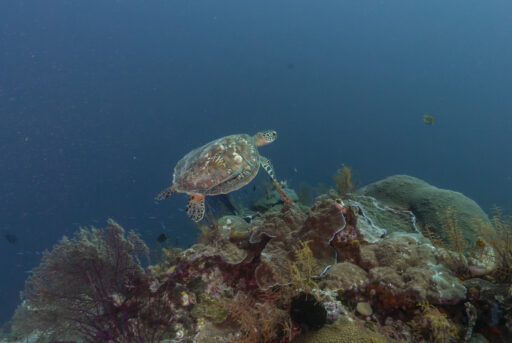
Timor-Leste, with its stunning 747-kilometre coastline and a vast ocean expanse covering 75,000 square kilometres, is part of the Coral Triangle – a global hotspot for marine life, home to numerous corals, fish and whale sharks, to name just a few species. Among these treasures are three of the world’s seven endangered sea turtles. However,
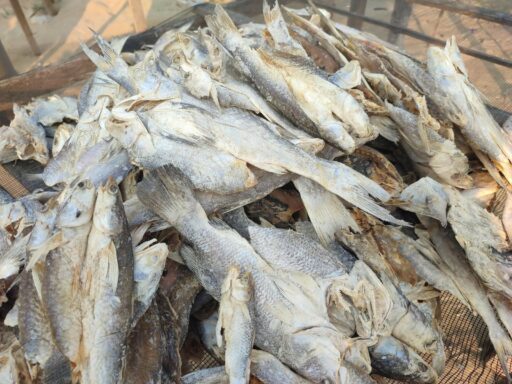
Merauke, situated at the easternmost tip of Indonesia in Papua Province, is more than just a hub for plantation sectors like coconut, palm oil, rubber and forest products. According to the Audit Board of the Republic of Indonesia, its expansive coastline, stretching over 846.36 km and encompassing a marine area of 6,269.86 km2, holds immense
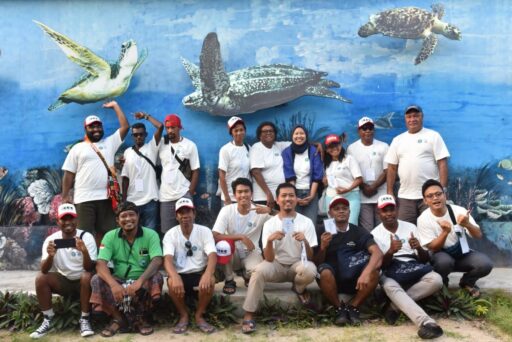
The Arafura and Timor Seas Ecosystem Action Phase II (ATSEA-2) Project hosted a Regional Exchange on Sea Turtle Conservation in Bali, from 14-16 September 2023. The event that was organised in collaboration with Turtle Conservation and Education Center (TCEC), gathered together teams of local community members and government representatives from Indonesia, Timor-Leste and Papua New
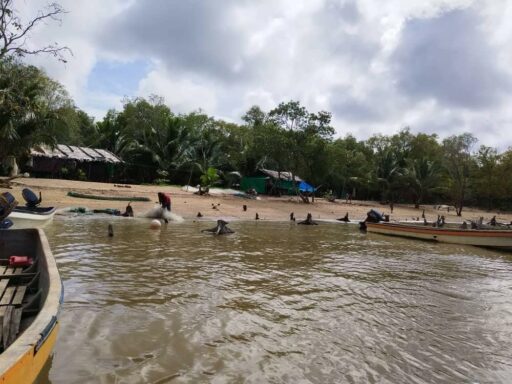
Small-scale Illegal, unreported and unregulated (IUU) fishing continues to cast a shadow over artisanal fisheries and the users of ecosystem services in the South Fly District of Western Province, Papua New Guinea. The exploitation of marine resources in this manner remains an urgent issue, underscoring the need for support to empower local fisherfolk in their
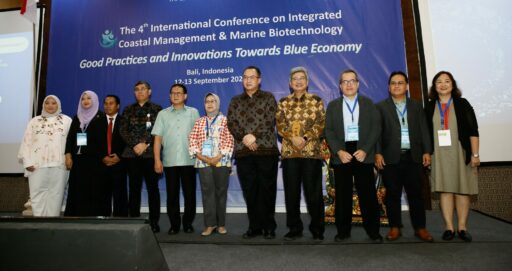
The 4th International Conference on Integrated Coastal Management & Marine Biotechnology (ICMMBT) organised on 12 and 13 September 2023 in Bali, Indonesia. The conference provided a global platform for the exchange of practical solutions, innovative approaches and cutting-edge research in coastal and ocean management and governance. The 4th ICMMBT convened experts and thought leaders committed
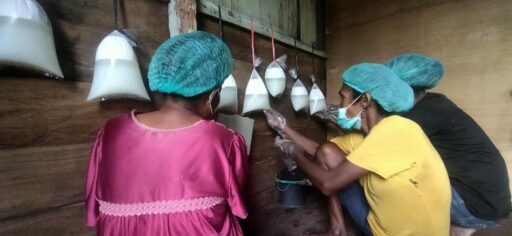
Located in the South Aru sub-district of Indonesia’s Aru Archipelago, Lutur Village (known locally as Nata Lutur) is approximately 3-4 hours by boat from Dobo. En route to the village, coconut trees line the coastal roads and fill the villagers’ gardens. These trees, and the coconuts they produce, are a similarly prominent feature in the
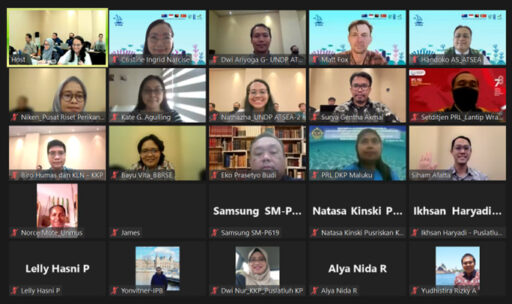
In 2023, a series of workshops and consultations focused on refining the Strategic Action Programme (SAP) for the Arafura and Timor Seas (ATS) marine ecosystem. These collaborative efforts represent an integral component of the Arafura and Timor Seas Ecosystem Action Phase II (ATSEA-2) Project and its ongoing commitment to foster and facilitate cooperation between Australia,
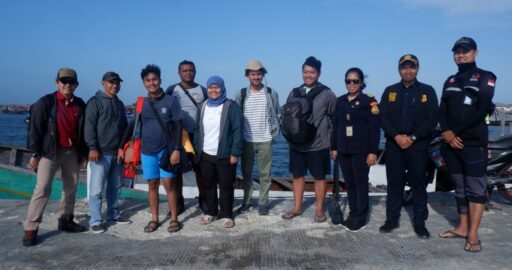
The Aru Archipelago is home to some of the richest fishing grounds in Indonesia. Last year, the Ministry of Marine Affairs and Fisheries (MMAF) estimated that around 876,722 tonnes of demersal fish can be found in these waters, making them a hotspot for commercial fisheries. But this abundance also makes the region vulnerable to overexploitation
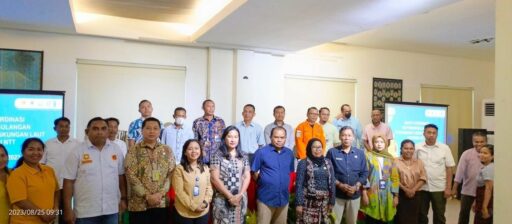
The waters surrounding Rote Ndao in East Nusa Tenggara (NTT) Province are increasingly at risk from pollution, due to a combination of oil and gas exploration and maritime traffic. Pollution associated with these issues can have a devastating impact on marine organisms, while also impacting coastal ecosystems and the local communities who rely on natural
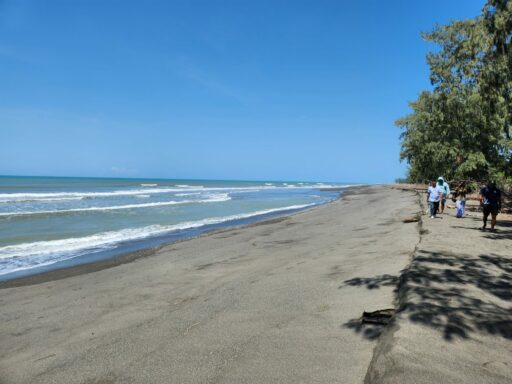
Throughout generations, coastal and marine resources have been a lifeline for local communities, who have consistently employed sustainable and wise practices. This can be witnessed in Viqueque, Timor-Leste, one of the Arafura and Timor Seas Ecosystem Action Phase II (ATSEA-2) Project’s working areas. Their collective mission involved an in-depth exploration of the methods employed by
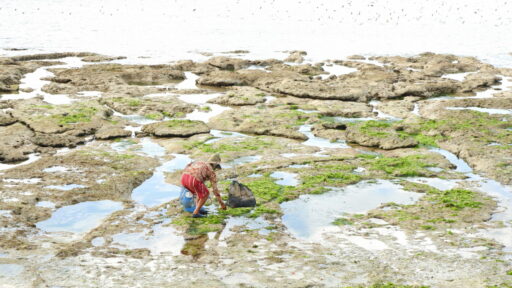
In 2009, an oil spill struck Rote Ndao District in Indonesia’s East Nusa Tenggara (Nusa Tenggara Timur/NTT) Province, impacting coastal areas where many local communities rely on the sea for their livelihoods. Today, the threat of a recurrence continues to loom large. Now, important steps are being taken to build awareness, take action and improve
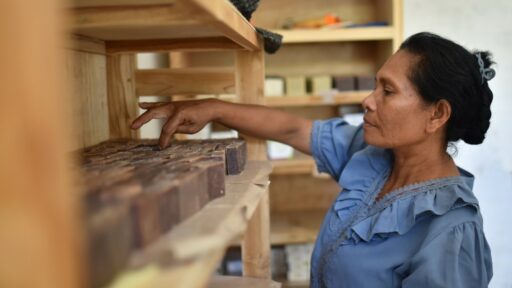
The Arafura and Timor Seas Ecosystem Action Phase II (ATSEA-2) Project is committed to ensuring equal participation between women and men, aligned with the Gender Equality and Social Inclusion (GESI) strategies, guidelines and standards advocated by United Nations Development Programme (UNDP) and Global Environment Facility (GEF). In Rote Ndao, the project has teamed up with
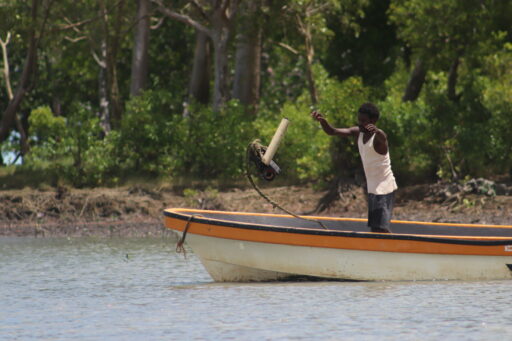
South Fly District, in the Western Province of Papua New Guinea, is renowned for its abundant marine resources. For generations, local people have maintained the delicate balance of utilisation and conservation of the natural world through the implementation of customary laws. Recognising the importance of preserving marine resources, and the value of local knowledge to
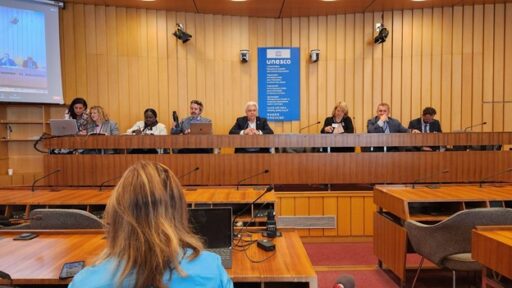
United Nations Educational, Scientific and Cultural Organization (UNESCO) organised the 22nd Annual Consultative Meeting on Large Marine Ecosystems and Coastal Partners (LME22) was held at the UNESCO Headquarter in Paris, France. Taking place from 11 – 13 July 2023, the overarching objective of this consultative meeting was to strengthen LME partnerships, address new challenges and
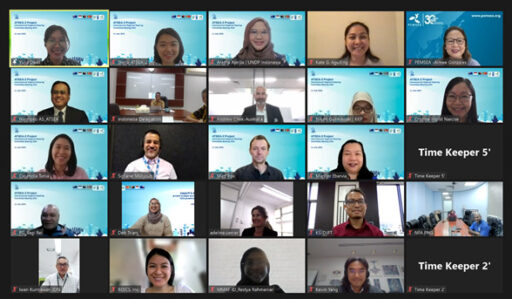
On 11 July 2023, members of the Arafura and Timor Sea Ecosystem Action Phase II (ATSEA-2) Project’s Regional Steering Committee (RSC) met online, in preparation for project completion in 2024. The RSC, which is responsible for making key project decisions, gathered to assess mid-year progress and discuss pending tasks. Participants included government representatives from Australia,
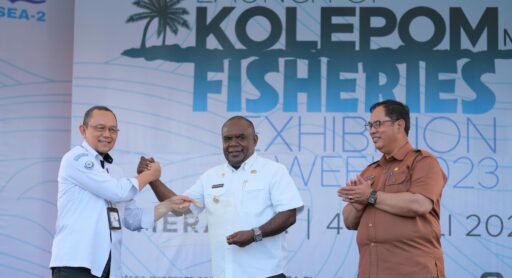
South Papua Province officially launched its first Marine Protected Area (MPA) on 4 July 2023, in Merauke on Kolepom Island, established in January 2023 under the authority of Minister of Marine Affairs and Fisheries Decree No. 5 of 2023. This significant decision was the result of a collaborative effort involving various partners, including the Indonesian
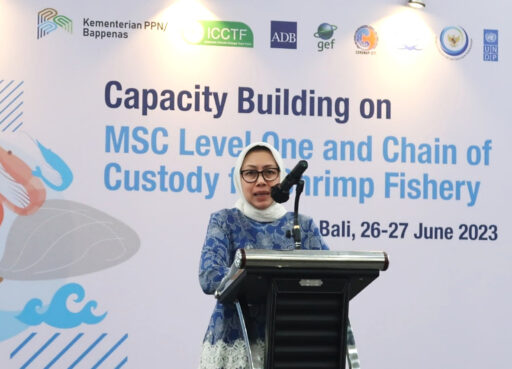
The ATSEA-2 Project recently teamed up with the Coral Reef Rehabilitation and Management Project-Coral Triangle Initiative (COREMAP-CTI) to organise a comprehensive two-day capacity building program for the Marine Stewardship Council (MSC). The event took place from 26-27 June 2023 in Bali, Indonesia. The main objective of the training was to enhance the knowledge and skills
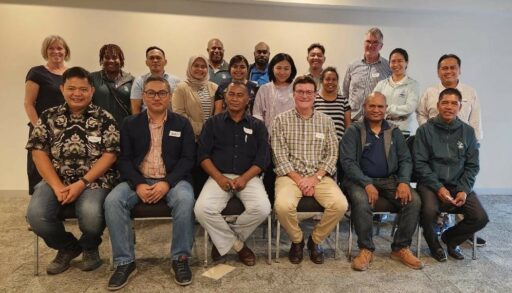
In many countries, ‘open access’ arrangements are the status quo, providing all fishers within a defined jurisdiction (e.g., national) the same rights to access fisheries resources. This free-for-all approach results in increasing numbers of fishers competing for finite resources. Unsurprisingly, this puts strain on fish stocks and can dramatically impact ecosystem health. Conversely, Rights-based Fisheries
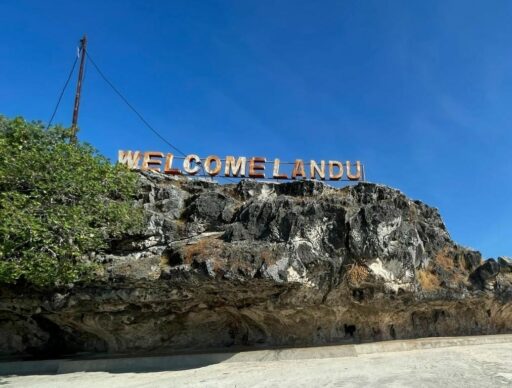
Since 2019, the ATSEA-2 Project has been focusing on coastal and inland communities in Rote Ndao District, with a particular emphasis on four target villages: Daiama Village in Landu Leko Sub-district, Oeseli Village in Southwest Rote Sub-district, Bo’a Village in West Rote Sub-district and Landu Tii Village in Southwest Rote Sub-district. The program’s activities aim
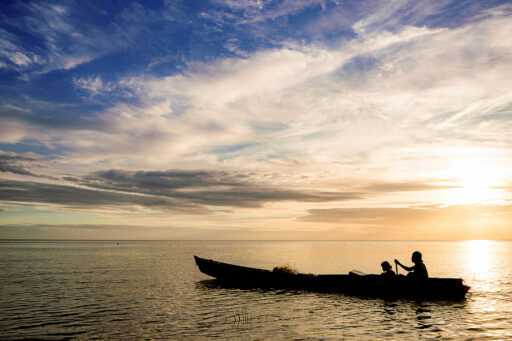
Tucked away in the Aru Archipelago in Indonesia’s Maluku district, Apara Village is home to captivating traditions and a way of life unique to this remote corner of the world. Located on Workai Island, the village is blessed with access to the Southeastern Aru Conservation Area and the surrounding sea. The journey to get here
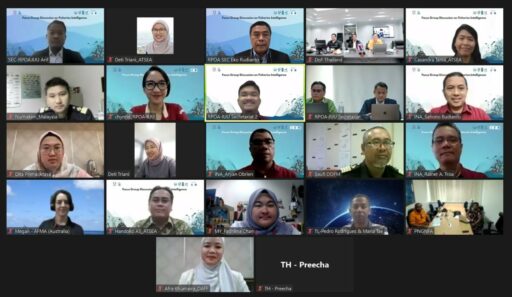
On 15 and 16 June 2023, the Regional Plan of Action to combat Illegal, Unreported and Unregulated Fishing (RPOA-IUU) and the ATSEA-2 Project organised a hybrid Focus Group Discussion (FGD) on fisheries intelligence. The FGD brought together representatives from seven RPOA-IUU-participating countries: Australia, Cambodia, Indonesia, Malaysia, Papua New Guinea, Thailand and Timor-Leste. It served as
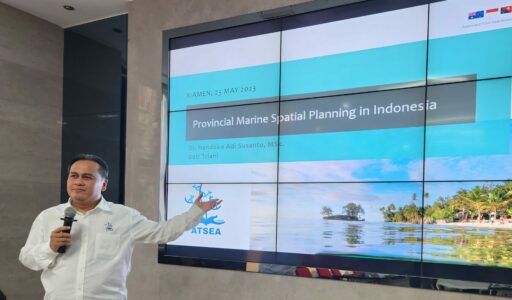
The ATSEA-2 Project is focused on protecting the Arafura and Timor Seas (ATS) region for the benefit of people and nature. Central to this approach is raising awareness of the issues facing the region, while forging sustainable partnerships that can support long-term conservation efforts. With that in mind, the ATSEA-2 Project recently travelled to China,
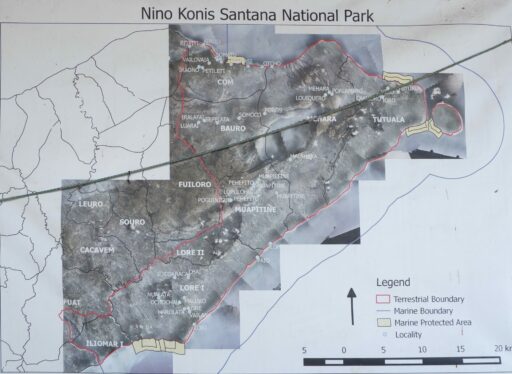
From 5-7 June 2023, the ATSEA-2 Project conducted an assessment using the Management Effectiveness Tracking Tool (METT) in Com Village, Timor-Leste. Working in collaboration with the Ministry of Agriculture and Fisheries (MAF), this assessment aimed to evaluate the extent to which Nino Konis Santana National Park (NKSNP) has successfully achieved its goals and benefited the
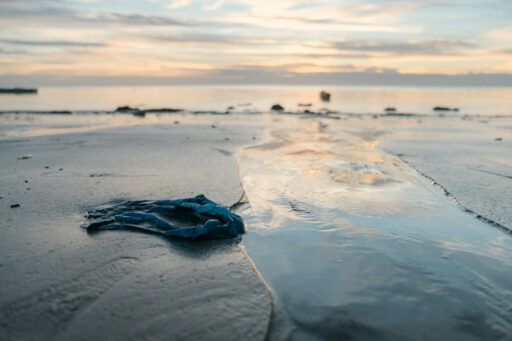
In the spirit of World Ocean Day 2023 celebration (8 June, annually), we should take a moment to consider the work that needs to be done. From marine pollution and climate change to unsustainable practices and declining populations of endangered species, the challenges we face are immense. In the Arafura and Timor Seas (ATS) region,
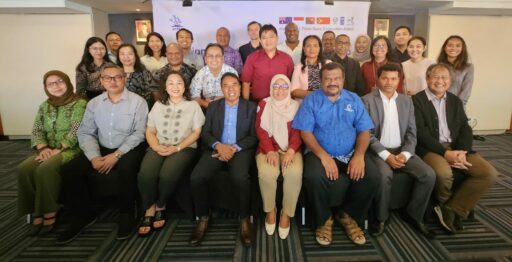
In an effort to promote sustainable development and address pressing regional challenges, a Regional Strategic Planning Workshop was held in Bali, Indonesia on 30 and 31 May 2023. The offline workshop brought together approximately 35 key stakeholders, including ATSEA-2 National Project Directors, members of the Regional Working Group, representatives from the United Nations Development Programme
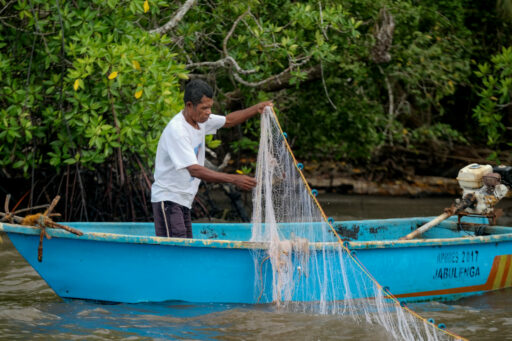
The International Day for the Fight against Illegal, Unreported and Unregulated (IUU) Fishing was celebrated on 5 June 2023. This was followed by World Ocean Day on 8 June 2023. These two important events helped to bring the importance of our work into focus, highlighting the need for collaboration in safeguarding our oceans, while also
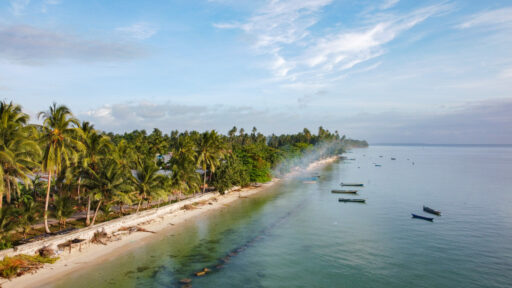
Exploring the Fore Coast in South Fly district is an enchanting experience. Navigating the tranquil intertidal waters, visitors discover pristine beaches and mangroves. The outboard motor hums continuously, as we pass by anglers in their canoes and vigilant boat spotters, who ensure their skipper steers clear of fishing nets. The ATSEA-2 team has had the
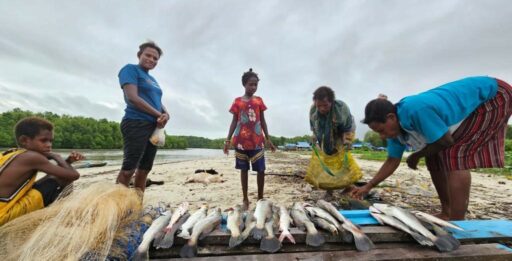
The Ministry of Maritime Affairs and Fisheries (MMAF), through the Directorate General of Marine Spatial Management (Ditjen PRL) has made a commitment to maintaining the sustainability of Indonesia’s marine ecosystems. One of the major efforts undertaken is to increase Marine Protected Areas (MPAs) coverage to 32.5 million hectares, or approximately 10 percent of Indonesian waters,
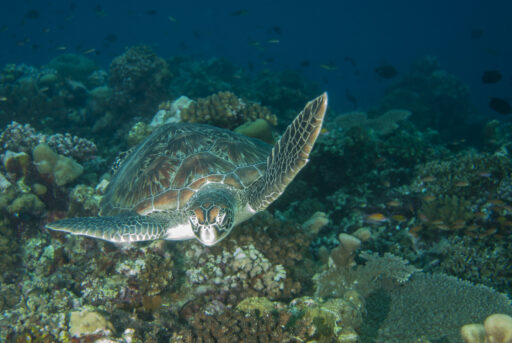
From 15-17 May 2023, the ATSEA-2 Project participated in a workshop entitled “Protecting Marine Migratory Species and Achieving the 30×30 Target” in Manado, Indonesia. This three-day event, organised by the European Union Ocean Governance project and the Marine Protected Area (MPA) Working Group of the Coral Triangle Initiative on Coral Reefs, Fisheries and Food Security
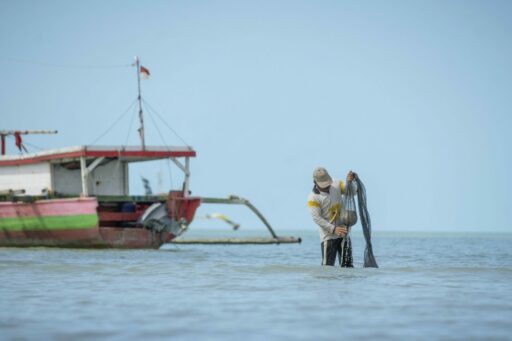
The littoral nations of the Arafura and Timor Seas (ATS) region are united in their efforts to combat the depletion of marine and fishery resources. Recognising the significance of collaboration, the ATSEA-2 Project conducted the Strategic Thinking and Strategic Planning National Workshops in Port Moresby, Papua New Guinea (PNG), on 5 April and 5 May 2023,
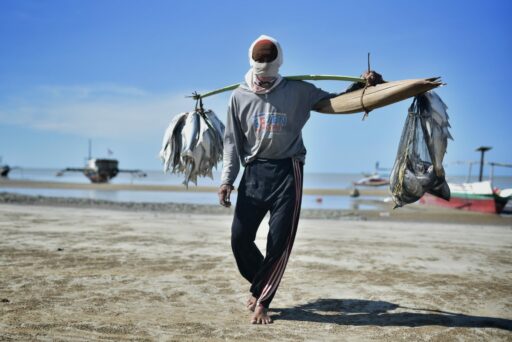
In Timor-Leste, the coastal waters of Viqueque – known locally as Viqueque Municipio – are rich in fish species such as tuna, mackerel and snapper. The region is also home to a lively coastal community and a thriving group of fisherfolk. With support from the Arafura and Timor Seas Ecosystem Action Phase II (ATSEA-2) Project,
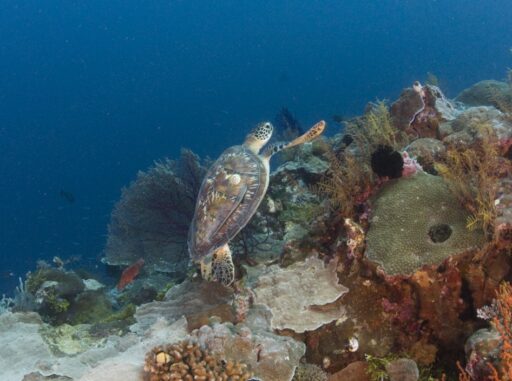
On 28 March 2023, the ATSEA-2 Project organised a meeting at the Marine and Fisheries Research and Human Resources Agency to evaluate the management effectiveness of the Southeast Aru Marine Protected Area (MPA). The meeting aimed to assess the MPA’s effectiveness using two tools: a new evaluation tool for the management effectiveness of marine conservation
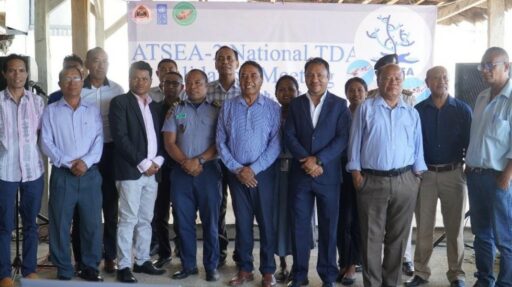
On 14 March 2023, the Ministry of Agriculture and Fisheries (MAF) of Timor-Leste, in collaboration with ATSEA-2 project hosted the National Transboundary Diagnostic Analysis (TDA) Validation Meeting in Dili. The primary objective of the meeting was to review the draft country synthesis report and collectively address any gaps or issues. The meeting provided a platform
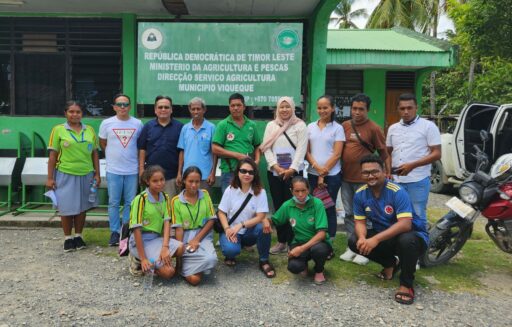
From 8-12 March 2023, the ATSEA-2 Regional Project Management Unit (RPMU) visited Dili and Viqueque in Timor-Leste, in order to provide updates on project progress through meetings with related organisations. The team included the Regional Project Manager, Dr. Handoko Adi Susanto, together with RPMU members Stella Puteri and Deti Triani, who met with representatives from
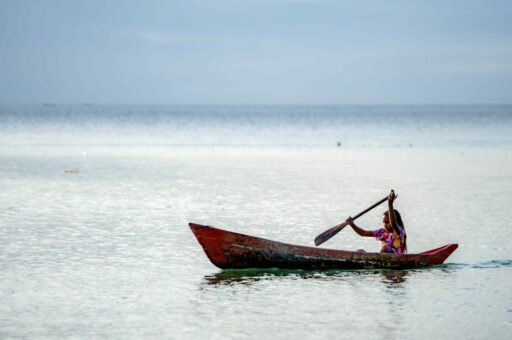
Through gender mainstreaming and capacity-building programs, the ATSEA-2 Project is committed to promoting gender equity in the sustainable management of coastal resources. From 6-10 March 2023, the project hosted a gender workshop in Dobo, Aru Archipelago. A total of 34 people attended, comprising representatives from national, provincial and district government departments, a women’s organisation, non-government
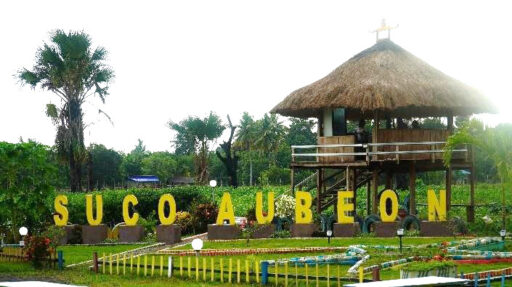
The ATSEA-2 project has been collaborating with the Hader Foundation, a local non-governmental organisation that supports the implementation of home gardens in the Manatuto Municipality of Timor-Leste, specifically in Aubeon; a drought-resistant village in the Barique Administrative Post. The primary goal of the home garden program is to support livelihoods in the community. It focuses
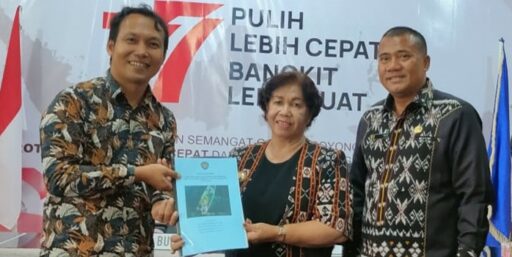
Rote Ndao is an island district that is particularly rich in resources. With 27,493 ha of coral reefs, 4,699 ha of seagrass beds and 2,156 ha of mangrove areas, the region provides livelihoods for more than 2,393 fishing households. However, these resources – and the people that rely on them for survival – are vulnerable
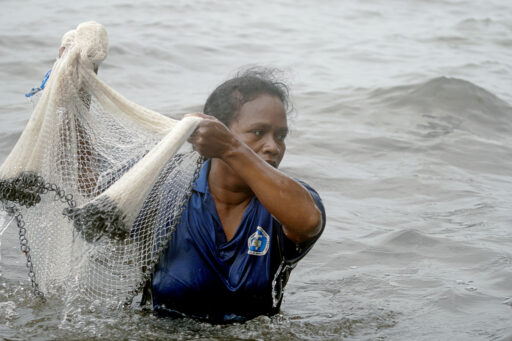
Marine and fishery sectors in Indonesia are still dominated by men, as women fishers receive less acknowledgement and official support such as subsidies and insurance coverage. Nevertheless, women continue to be actively involved in downstream activities, such as post-harvest handling, selling, processing, storage, packaging and marketing, while also providing labour in both commercial and artisanal
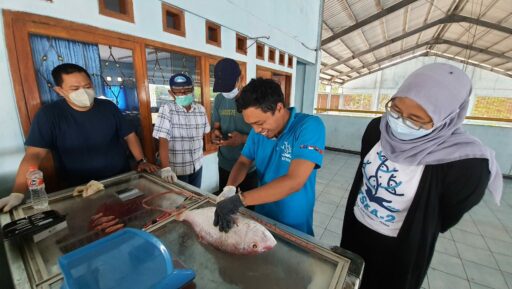
Since February 2020, the ATSEA-2 Project has been working with the Centre for Fisheries Research (CFR) of the Ministry of Marine Affairs and Fisheries (MMAF) to collect daily data on red snapper in the Arafura Sea. The main species of red snapper targeted for study included Lutjanus malabaricus, Lutjanus erythropterus, Lutjanus sebae and Pristipomoides multidens.
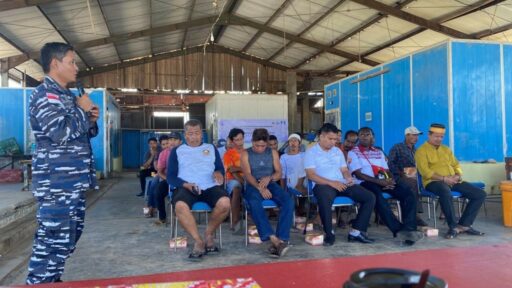
Marine and fisheries resources in the Arafura Sea (WPP 718) must be utilised responsibly in order to ensure their sustainability and improve the welfare of those who rely on them for survival. Considering the vastness of this area and the many types of violations that occur here, a strong monitoring instrument is needed. Despite many
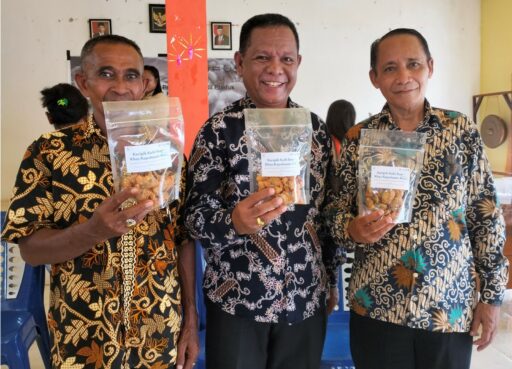
In Dobo, the capital of the Aru Archipelago, The ATSEA-2 Project recently initiated coordination and training on the processing of fish skin waste produced by local fish companies. Together with the Aru Department of Fisheries and CV Niaga Indonesia, this collaboration forms part of wider efforts to reduce fish processing waste and create added value
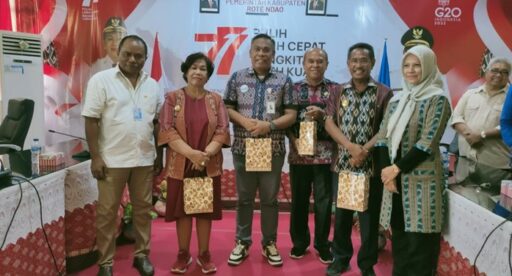
To build a strong joint commitment between the Rote Ndao District Government and Bank NTT, and in support of sustainable economic activities in the local community, phase two of the Arafura and Timor Seas Ecosystem Action (ATSEA-2) Project facilitated the signing of a Memorandum of Understanding (MoU) and a Cooperation Agreement (PKS) between the two
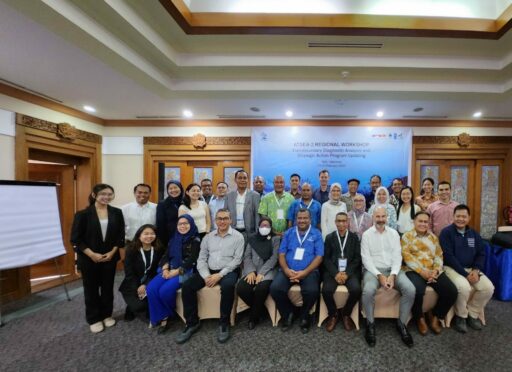
From 21-24 February 2023, the Arafura and Timor Seas Ecosystem Action Phase 2 (ATSEA-2) Regional Workshop on Transboundary Diagnostic Analysis (TDA) and Strategic Action Program (SAP) Updating was held in Bali, Indonesia. The workshop brought together 31 participants, comprising National Project Directors (NPDs); Regional and National TDA consultants; TDA-SAP National Working Group (NWG) representatives from
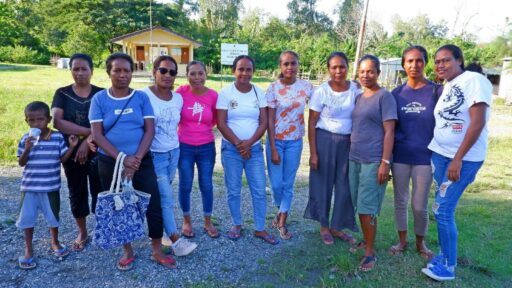
Most households in the Barique Posto Administrativo region of Timor-Leste rely on agriculture, livestock and fishing for a living. Income fluctuates throughout the year, making it difficult to make ends meet. Despite having less agency in money management, women carry a larger share of the household’s financial burden. The problem is compounded by their lack
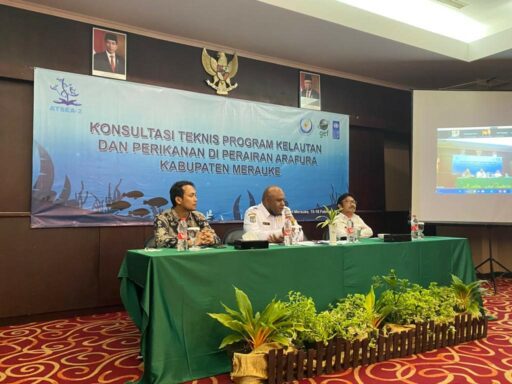
Located in the Pacific Ocean between Australia and Papua, the Arafura Sea is a valuable source of fisheries resources for Indonesia, due to the high volume of shrimp and demersal fish species in the area. However, illegal fishing activities in the region are depleting fish stocks and resulting in significant losses for the Indonesian government.
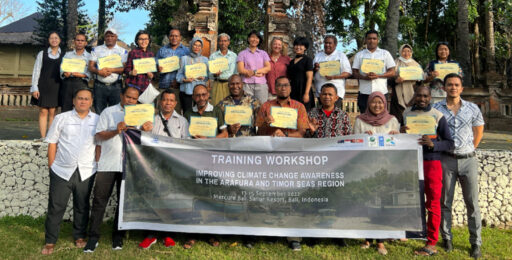
For the Arafura and Timor Seas (ATS) region, climate change represents an environmental transboundary issue of utmost priority. According to a 2021 report by the Intergovernmental Panel on Climate Change (IPCC), recent changes in the climate are widespread, rapid and intensifying, and unprecedented in thousands of years. With that in mind, and to better understand
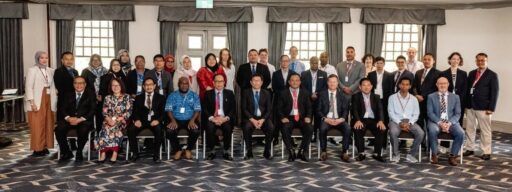
Regional problems require regional solutions. This is why collaboration is so crucial to the work being done by the ATSEA-2 Project. Our approach is embodied in the Regional Plan of Action to combat IUU fishing (RPOA-IUU). IUU fishing continues to pose a major threat to the Arafura and Timor Seas (ATS) region. Ever since its
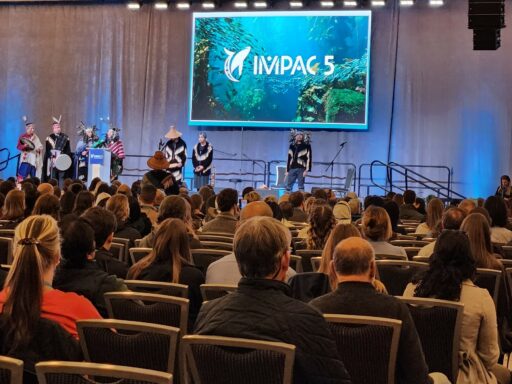
The International Marine Protected Areas Congress (IMPAC) is a platform for marine conservation managers and practitioners worldwide. Its aim is to share best practices and exchange knowledge for the protection of marine biodiversity and cultural heritage. IMPAC congresses are held every four years, with five iterations of the congresses already held to date. The most
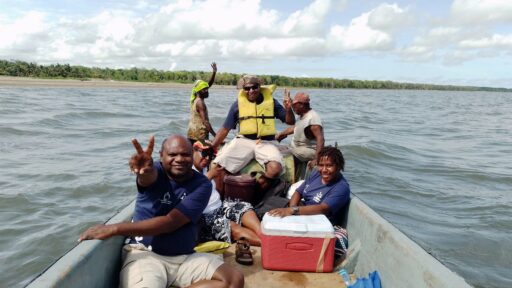
Due to rising demand for fisheries commodities in Papua New Guinea, many fisherfolks are under increasing pressure to overharvest local species. In response, from 15-18 November 2022, ATSEA-2 team travelled to South Fly District to advocate for sustainable approaches to fisheries management among the local people. Together with South Fly District Fisheries and with support
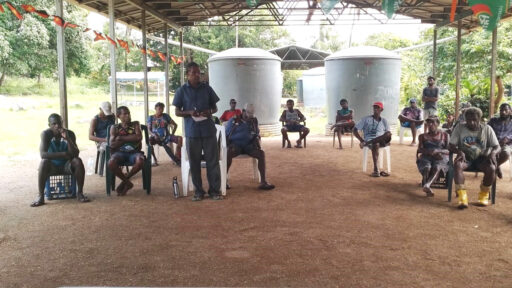
Coastal communities in the Arafura and Timor Seas (ATS) rely mainly on fishing for their livelihoods. In Papua New Guinea (PNG), for example, there are 13 coastal villages located in the South Fly region which share a border with Indonesia; commonly referred to as ‘Treaty Villages’, they also share a sea border with Australia. Unfortunately,
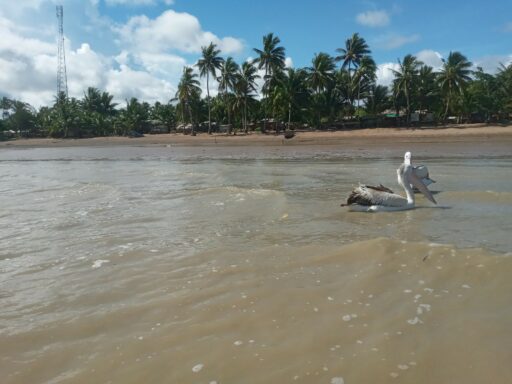
The National Fisheries Authority (NFA) and the ATSEA-2 Project from 29 January to 2 February 2023 conducted a study on fish maw fisheries and fishing gear use in South Fly, Papua New Guinea, which has yielded crucial information about the socio-economic status of communities in the area. The project surveyed fishing gear use in several
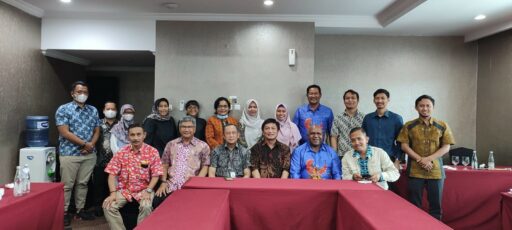
The Indonesian archipelago already has 28.4 million hectares of marine protected areas (MPA) spread out across its waters. Now, the Ministry of Maritime Affairs and Fisheries (MMAF) has committed to developing 30 million hectares of MPAs by 2030. Kolepom Island in the Merauke district of South Papua Province is a pristine marine habitat that supports
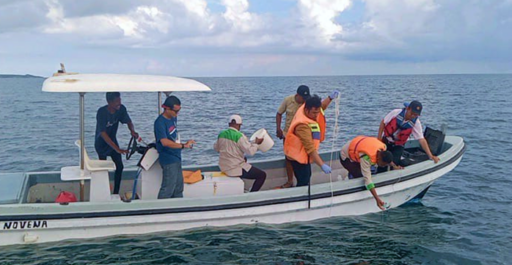
In addition to its rich natural resources, the Arafura and Timor Seas (ATS) is also known to have enormous oil and natural gas potential. This poses a major risk to the region, in the form of oil spills and other pollution related to shipping. As part of ongoing efforts to mitigate these risks, the ATSEA-2
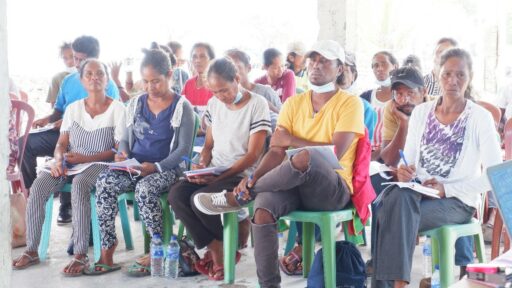
Ancient, beautiful and threatened, sea turtles have roamed the planet’s oceans for millions of years. However, in the past few decades, their populations have been dwindling due to a combination of poaching, habitat destruction and bycatch. Evidence of this worrying decline has been seen in Com Village, Timor-Leste. Com Village is part of Nino Konis
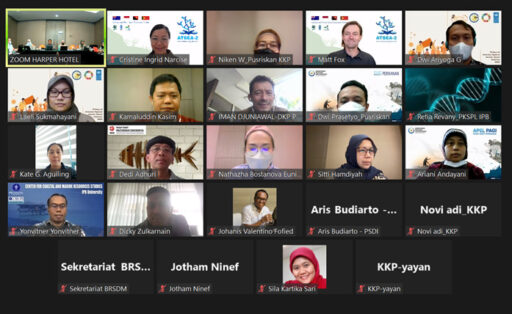
In the Arafura and Timor Seas (ATS) region, overfishing, habitat degradation and the impacts of climate change continue to threaten marine species. Consequently, there is an urgent need for regional collaboration and transboundary management of economically important marine megafauna, crucial ecosystems and fish species. With that in mind, the ATSEA-2 Project recently held a series
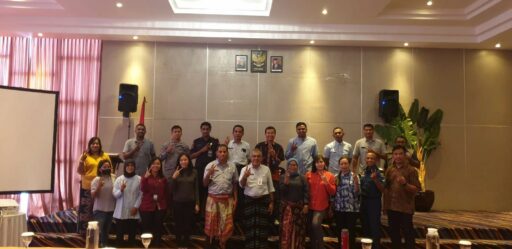
Oil spills in the ocean are a major environmental problem. These spills pollute coasts and estuaries, while also posing serious health risks to humans. While massive and catastrophic spills attract the most attention, smaller and chronic spills actually occur on a regular basis. To support effective responses to oil spill incidents, a training session was
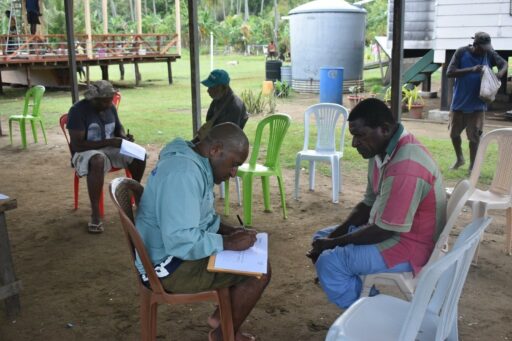
In the South Fly district of Papua New Guinea (PNG), the ATSEA-2 Project has been busy collecting data on fisheries and the use of fishing gear. Results of this process will inform the ongoing revision of project targets in 2023, particularly with regards to the issue of fish maw harvesting and improvements to fishing gear
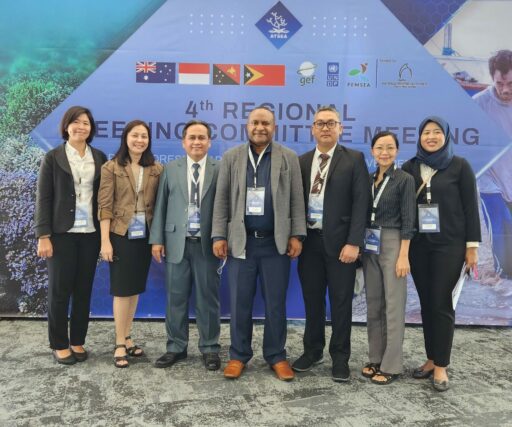
On 2 and 3 November 2022, after more than two years of virtual meetings due to the global pandemic, key members of the ATSEA-2 Project’s Regional Steering Committee (RSC) gathered for the first time in Port Moresby, Papua New Guinea, for the 4th Regional Steering Committee meeting. The ultimate aim of the meeting was to
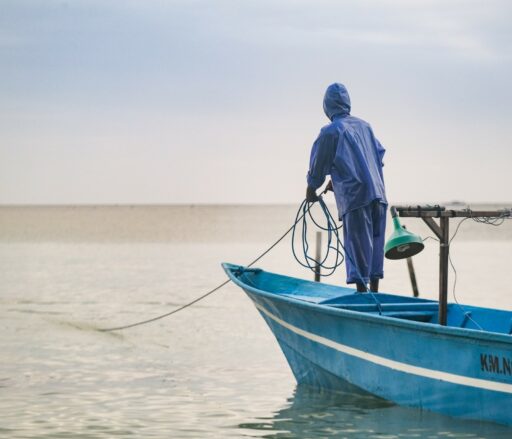
The Arafura Sea is home to the 718 Fisheries Management Area (also known as WPP-NRI 718). Here, Pelabuhan Perikanan Nusantara Tual (PPN Tual) is the Executive Coordinator responsible for the implementation of a Fisheries Management Plan (FMP/RPP) in the region. Considering the vital role the area plays in maintaining the productivity and sustainability of fishery
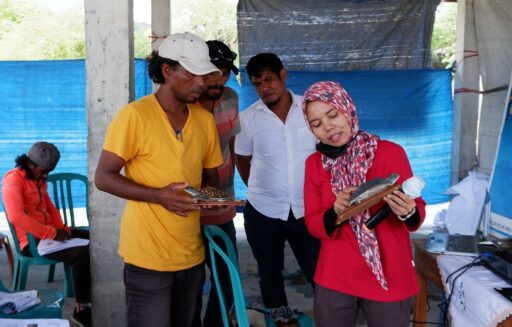
Timor-Leste had just celebrated its Independence Day the day before the nation’s first ever sea turtle training session, which was hosted on 29 November 2022. It was a nice, sunny day in Com Village, Lautem Municipality, Timor-Leste. The heat did not seem to dissuade participants from joining the training, which was held in a semi-outdoor
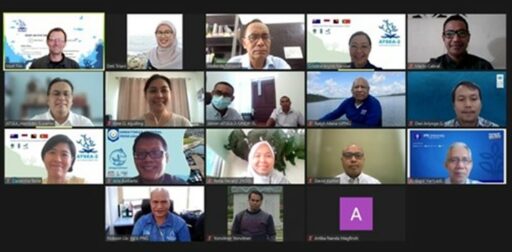
In support of the ongoing updating of the Transboundary Diagnostic Analysis (TDA) for the Arafura and Timor Seas (ATS) region, a series of Causal Chain Analysis (CCA) workshops was organised by the ATSEA-2 Project in September 2022. By establishing cause and effect for priority transboundary issues, these workshops will subsequently inform policy responses and ongoing
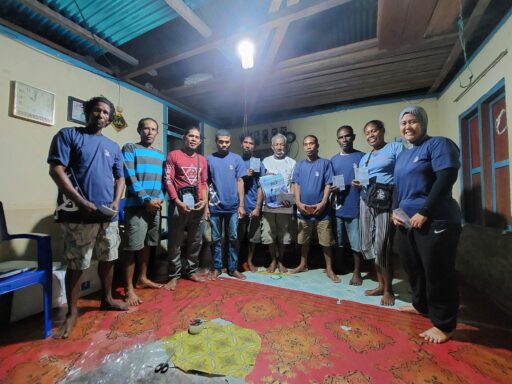
With the objective of holding discussion and coordination with the community-based surveillance group (POKMASWAS) named Gwer Ketabar in Apara Village regarding their progress in monitoring the use of Marine Protected Area (MPA) resources, ATSEA-2 Project team met with Muhidin on 29 September 2022. He is one of the fishermen who is also in charge of
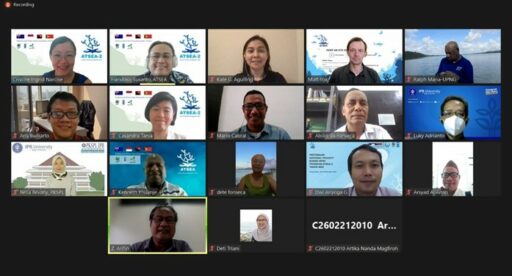
Overfishing, habitat loss and the effects of climate change together pose a major threat to a significant portion of marine species in the Arafura and Timor Seas (ATS) region. In response, regional cooperation and transboundary management of marine megafauna, vital ecosystems and economically significant fish species are sorely needed. In respect to the unique circumstances
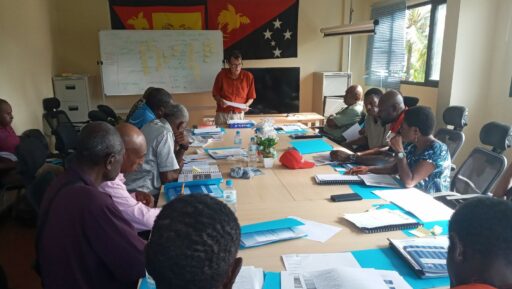
South Fly villagers in the western province of Papua New Guinea (PNG) have long understood the importance of nature. To them, fish and marine resources are essential to livelihoods. A recent training session provided by ATSEA-2 focused on using an Ecosystem Approach to Fisheries Management (EAFM) to make this link between fisheries and nature even
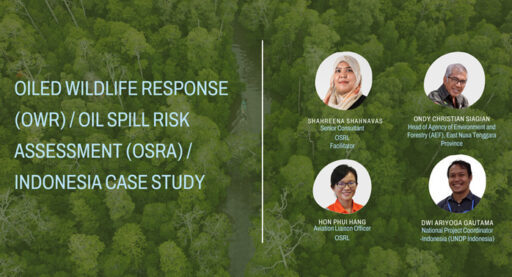
As part of wider efforts to raise awareness and build capacity among key stakeholders in the ATS region, the ATSEA-2 Project held a series of informative webinars in 2022, covering topics related to conservation of habitats and resources. As the year drew to a close, this quarterly webinar series was concluded with a pair of
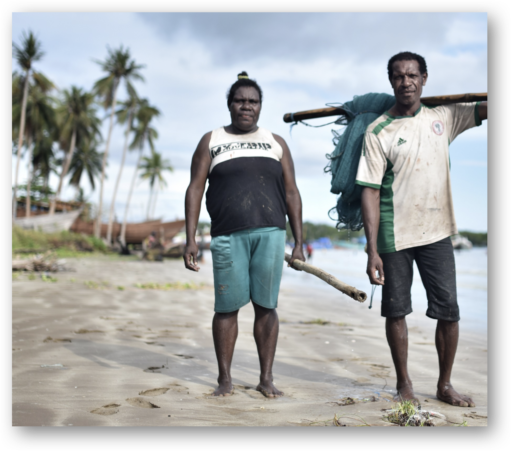
“I’ve been fishing since I was 17 years old,” says Mama Elizabeth Limai, her lips stained red with betel nut and her forehead beaded with sweat from a hard day’s work. “I normally catch ikan kaca (glassfish), gulama (white croaker), kakap (snapper), kurau (threadfin) and udang (shrimp),” she explains. Today, a bundle of glassfish hangs
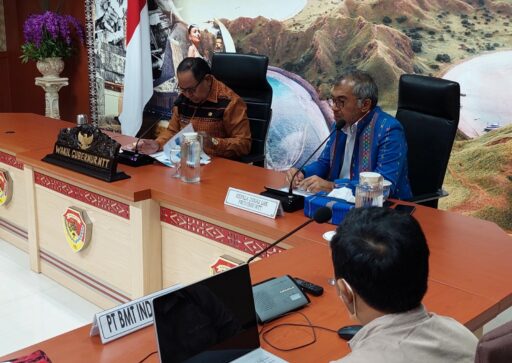
The Deputy Governor of East Nusa Tenggara (NTT) Province, Josef Adreanus Nae Soi, has offered his support to budget allocation for increasing the capacity of the marine pollution response team, with the addition of new members. The move is part of wider efforts to mitigate the risk of oil spills and lessen their impact through
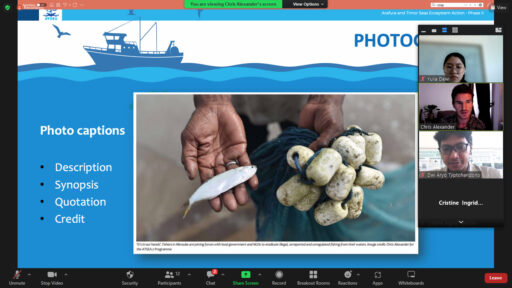
In order to raise awareness of important issues and impact policy, sharing information is essential. Information is the bridge between decision makers, researchers and community members. For ATSEA-2, it also enhances the visibility, understanding and impact of projects. In line with ATSEA-2 goals to improve the dissemination of project information, the Regional Project Management Unit
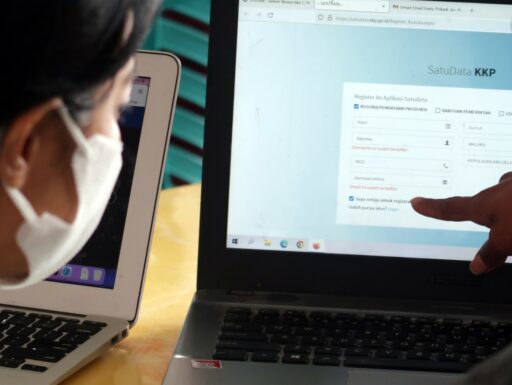
Traceability is a tool to ensure traded fish come from legal fishing activities and healthy, sustainable stocks with quality assurance. In global trade, traceability processes are a fundamental requirement applied by Regional Fisheries Management Organisations (RFMOs) and countries importing fishery products. In fishery industries such as the tuna trade, RFMOs require documentation of catches for
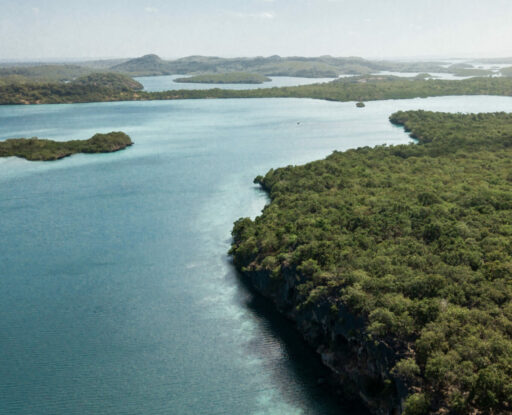
Image Credit: UNDP Indonesia for the ATSEA-2 Project Addressing local threats, while also increasing fisheries productivity, protecting biodiversity and building resilience to climate change. The ATS region supports foraging and migration for various rare and threatened sea turtle species. Cognizant of this fact, littoral nations in the region are taking action to incorporate sea turtle
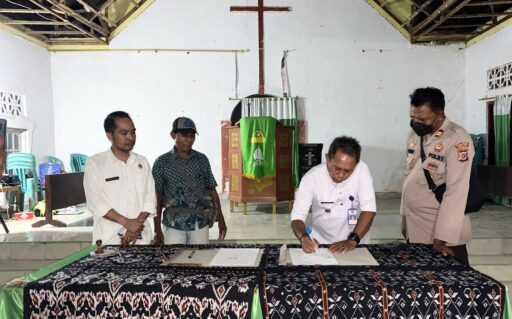
The sea provides livelihoods for more than 140,000 people living in Rote Ndao. However, in the past two years, marine resources have been threatened by irresponsible fishing activities and extreme weather related to climate change. To build resilience, improve fishing practices and mitigate the impacts of climate change, ATSEA-2 has been working with partners, officials
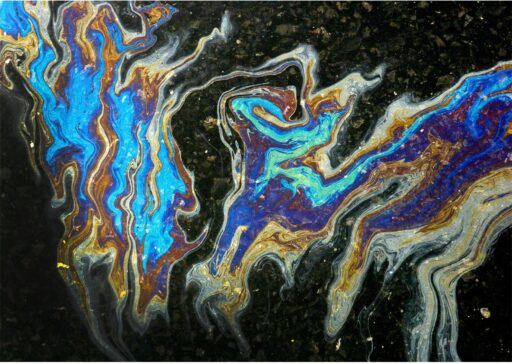
The Marine Pollution and Damage Response Team in the Waters of Province of East Nusa Tenggara (NTT) recently carried out one of their work programs, namely technical consultation on oil spill early warning system guidelines in Rote Ndao Regency. Prepared in collaboration with PT BMT Indonesia, the guidelines outline procedures for reporting oil spill events
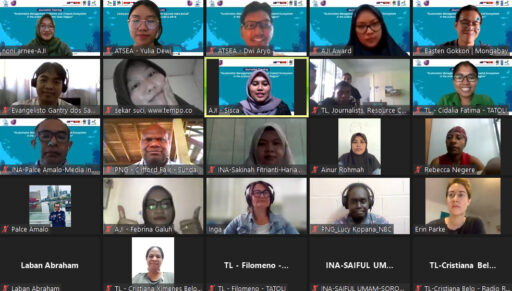
Worldwide, journalism has played a major role in raising awareness of environmental issues and generating support for biodiversity protection. In the Arafura and Timor Seas (ATS) region, marine and coastal ecosystems, along with the economic and ecological wellbeing of people, require more attention. For that reason, the ATSEA-2 Project is collaborating with the Alliance of
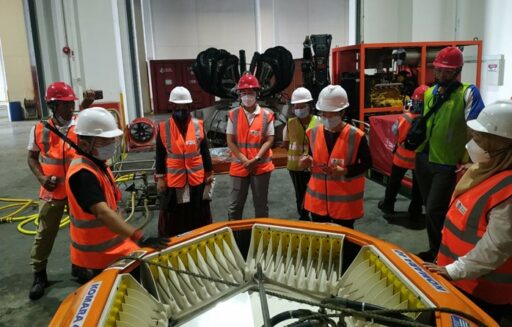
In 2021, ATSEA-2 completed a regional assessment of marine and land-based pollution hotspots in the Arafura and Timor Seas (ATS) region. The study showed that, while the ATS region is highly productive and rich in resources, it is also under threat from oil spills due to expansive oil and gas exploitation, especially in the Timor
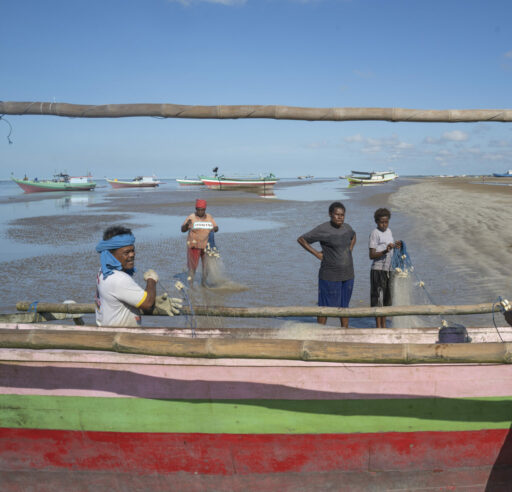
Thick clouds veiled the sky and drizzle was just starting to come down when the Kumbe-Merauke crossing sign came into view. Kumbe is one of the coastal villages in south-eastern Merauke, Papua. It takes 2-3 hours to get there from Merauke sub-district, passing through damaged and potholed village roads – a journey which is challenging,

In August of this year, the ATSEA-2 Project journeyed with the National Fisheries Authority to South Fly District in the Western Province of Papua New Guinea. Their aim was to discuss fisheries management issues through public consultation, as part of wider plans to develop an artisanal fisheries management plan. Community engagement and involvement are seen
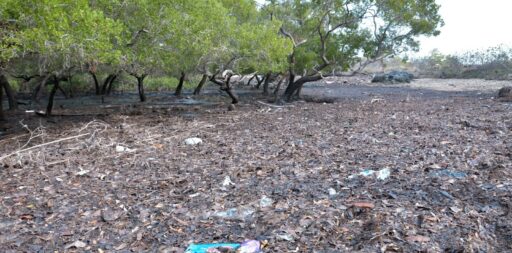
A recent study on marine and land-based pollution on the Southern coast of Timor-Leste found 14 hotspots with severe pollution loads. The study calls for urgent action to prioritise pollution control plans in order to protect the country’s marine resources; a key source of food, livelihoods and jobs for the millions of people who depend
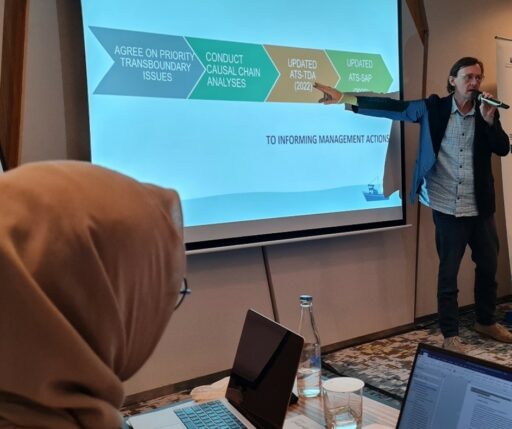
“A transboundary problem is an environmental problem that is transboundary in scale – In other words, it is an environmental problem originating in, or contributed by, one or more countries and affecting (or impacting) another,” said Matthew Fox, the Regional Transboundary Diagnostic Analysis (TDA) Specialist. Considering developments in the Arafura and Timor Seas (ATS) region
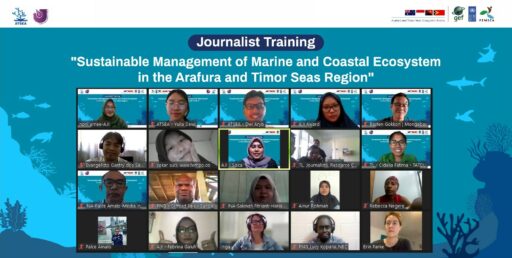
Worldwide, journalism has played a major role in raising awareness of environmental issues and generating support for biodiversity protection. In the Arafura and Timor Seas (ATS) region, marine and coastal ecosystems, along with the economic and ecological wellbeing of people, require more attention. For that reason, the ATSEA-2 Programme is collaborating with the Alliance of
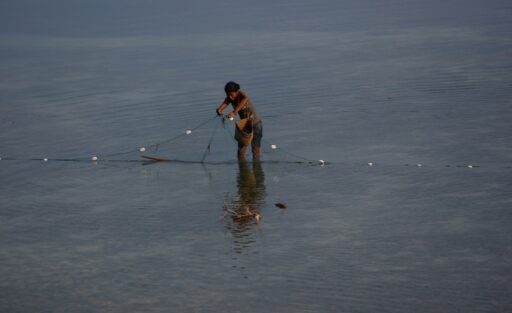
Since gender mainstreaming has been officially adopted as a strategy in the Sustainable Development Goals (SDG) and the Paris Climate Agreement, the term has become ubiquitous. Though various organisations and agencies now espouse their commitment to gender equality and to mainstreaming gender in their policies and programs, the actual integration of gender perspectives and analyses
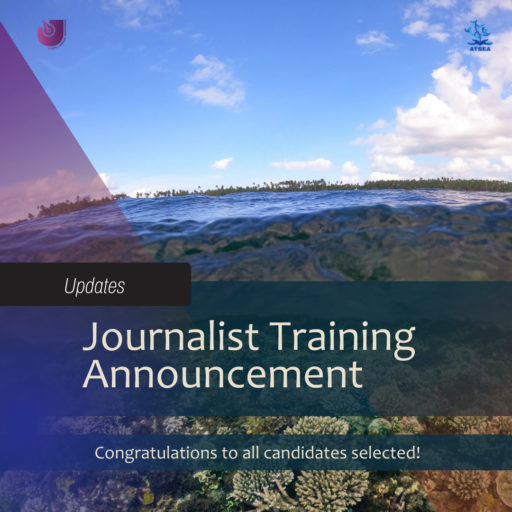
The Alliance of Independent Journalists (AJI) of Indonesia and the Arafura & Timor Seas Ecosystem Action Phase II (ATSEA-2) Project announced 21 outstanding candidates to join journalist training on Sustainable Management of Marine & Coastal Ecosystems in the Arafura Sea & Timor Seas Region. Here are the lists of the selected participants. Indonesia: Sakinah Fitrianti
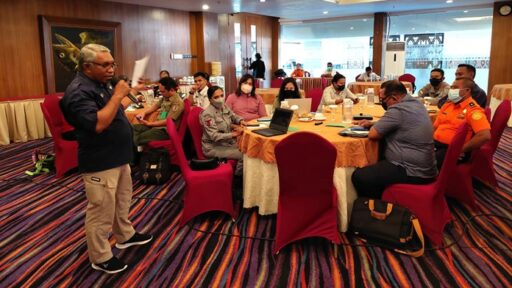
In July 2021, the Marine Pollution Handling Team was formed by the East Nusa Tenggara (NTT) Provincial Government, with support from the Ministry of Marine Affairs and Fisheries (MAAF) and the ATSEA-2 Project. This has helped strengthen cross-institutional coordination among government and non-government partners in NTT. To be successful in responding to potential marine pollution
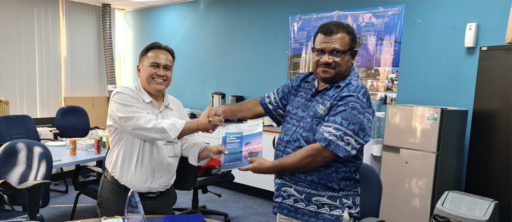
Building on the foundational results from the first phase of the GEF-financed and UNDP-supported Arafura and Timor Seas Ecosystem Action (ATSEA) Programme, the second phase project, ATSEA-2, welcomed the formal participation of Papua New Guinea (PNG) in the process of developing a sustainable programme for the management and conservation of marine and coastal resources in
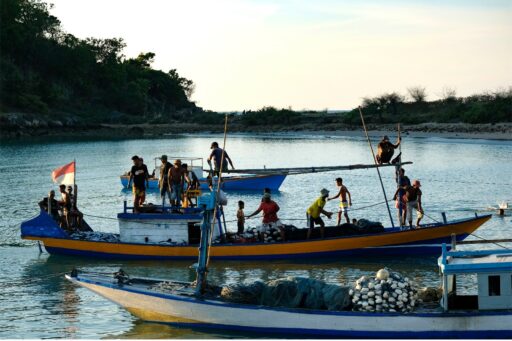
Marine resources make vital contributions to food security, livelihoods and the economic development of coastal communities. Climate change is expected to have profound effects on the status and distribution of coastal and oceanic habitats, the fish and invertebrates they support and, as a result, the communities and industries that depend on these resources for survival.
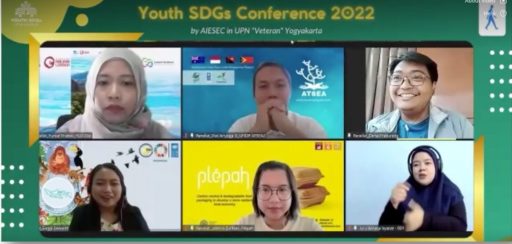
Thinking of ways to be guardians of the earth? The easiest way to be done is maybe by rethinking what you have considered as an “eco-friendly” lifestyle As Indonesia, like the rest of the world, deals with the current pressing environmental challenges, this year’s World Environment Day (WED) provided a sense of urgency to increase
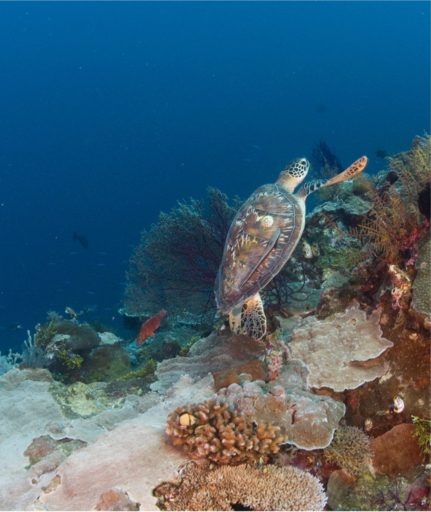
Sea turtle populations are greatly threatened by a number of human activities, such as unselective fisheries, direct take, predation, light pollution, illegal trade, habitat loss and climate change, to name a few. As a key part of marine food webs, they help us maintain a healthy ecosystem by controlling numbers of prey species (such as